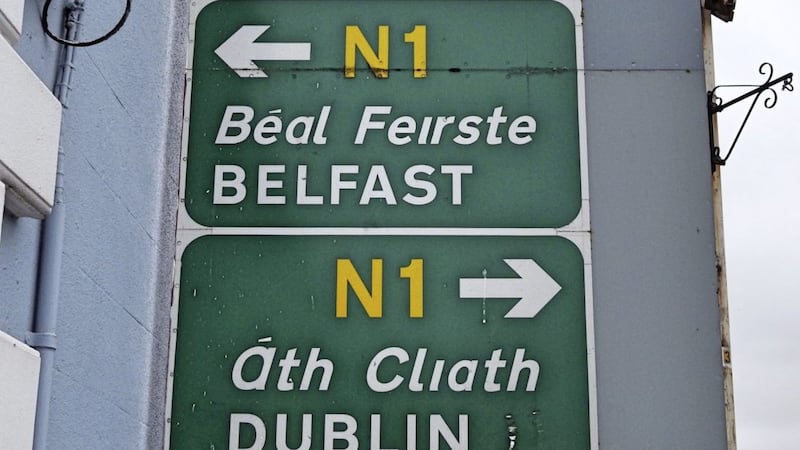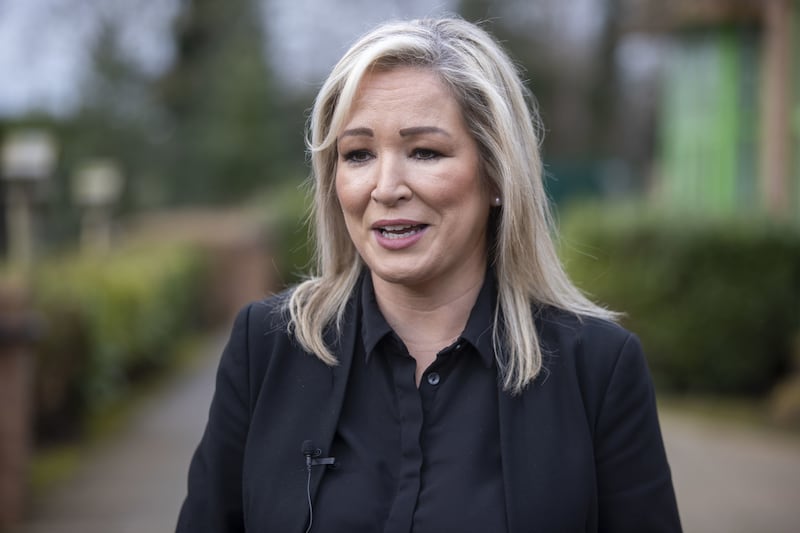SINN Féin has claimed that Dublin could absorb the north’s fiscal deficit in the event of a united Ireland.
In a new economic paper, the party labelled as ‘myth’ the analysis that puts the subvention – the annual gap between public revenue and expenditure in the north - at around £10 billion.
Launched on Friday, the ‘Economic Benefits of the United Ireland’ paper states that £19bn in revenue is raised annually in Northern Ireland.
While it accepts that total expenditure is £27.9bn, the report claims that deducting the British Government’s spending on defence, overseas spending the cost of servicing UK debt, takes the figure down to £25bn.
Sinn Féin claims a further £3.5bn spend on pensions could be knocked off, taking the deficit as low as £2.5bn
The party’s finance spokesperson in the Dáil, Pearse Doherty, described the shortfall as “absolutely affordable”.
He said that pre-covid, the Dublin Government had on average €2.5bn to €3bn of discretionary expenditure each year.
“In one year the southern economy could have actually absorbed the whole deficit of the north,” he said.
“It is absolutely affordable, but that’s not the argument we’re making. The argument we’re making is that the synergies of an all-Ireland economy will actually not lead to a deficit, but will lead to additional revenue.”
The 26-page document largely focuses on the north’s existing economic shortfalls and the long-term growth potential of a single all-Ireland economy.
It contrasts the economic output per capita in the north (£26,000) with the Republic (£36,000).
Sinn Féin leader Mary Lou McDonald acknowledged that the discussion over Irish unity will spark debate over practical issues including healthcare.
“Those practical preparations and questions need to be addressed now.”
She called for additional forums and mechanisms beyond the new Shared Island unit launched by Taoiseach Micheál Martin in June.
“We need an agreed space, an agreed forum, a citizen’s assembly, to ensure that those practical conversations and preparations begin now. There is no excuse for any political leader to bury their head in the sand and to imagine that this issue is going to go away,” said the Sinn Féin president.
“The fact is we are going to have a referendum on Irish unity.
“I believe we will win that referendum, but we have to be put in a state of readiness.”
Deputy First Minister Michelle O’Neill said that Brexit had prompted many people, including those with British identities, to assess the merit of Irish unity as a path to re-joining the EU.
“We’re launching this in the context of a very changing political and constitutional landscape," she said.
“We know people are reassessing their attitudes to these things and they’re also contemplating democratic alternatives to the union with Britain like never before.
“We’ve no doubt that in the middle of all that, Brexit has become a catalyst for that change and for that conversation.”
Sinn Féin’s Finance Minister in Stormont, Conor Murphy, yesterday re-iterated his repeated call for London to devolve additional fiscal powers to the Executive.
He compared concerns over Stormont’s ability to handle those fiscal levers with the debate over the devolution of policing and justice
“It’s probably one of the least contentious departments since the powers were transferred,” he said.
“Let us put economic policies and fiscal policies to the electorate in the north, let them take their decisions on the basis of what parties are offering.
“I believe there is sufficient maturity in the Assembly to deal with that. As a matter of fact, I think it would be hugely beneficial, not just for the Assembly as an institution, but for our politics north of the border.”








